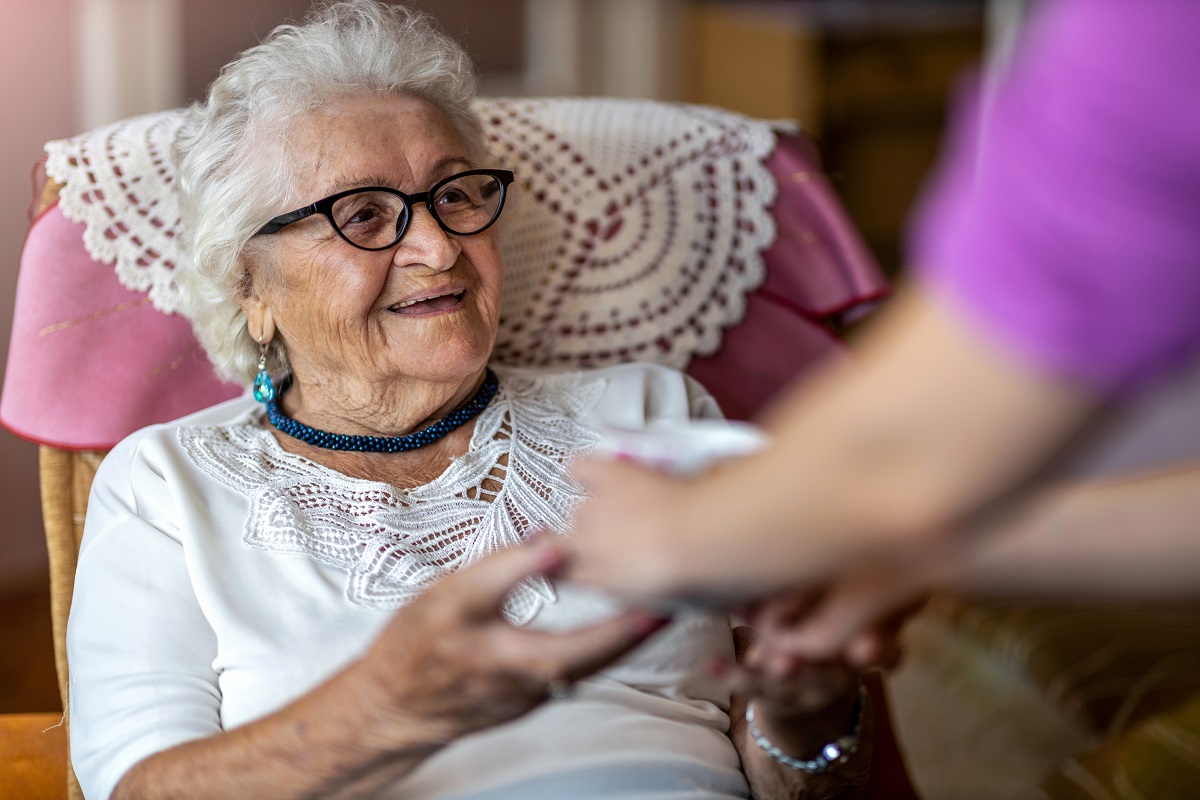James Ashwell reveals why so many people with dementia do not get the end-of-life care they want or deserve.
We were luckier than most. Mum’s death, when it finally came, was peaceful. She died at home, in a lovely room overlooking the garden, surrounded by her family. Her passing was still a harrowing, desperately sad event of course, but knowing that Mum’s final hours had been spent in the place she loved with the people she loved, definitely helped.
Not everyone, I’ve since discovered, is quite so fortunate. While very few people would say they want to die in hospital, the sad fact is that many of those with dementia still do. In fact, the Government’s new dementia atlas reveals stark differences in end-of-life care, largely dependent on which part of the country you happen to live in. For example, four out of five people with dementia who live in Devon, die at home, but more than six out of ten living in Tower Hamlets, Hounslow and Newham die on a hospital ward. Why? Surely the manner of our passing should not be dependent on our postcode, but on our personal preference?
Yet the subject of death, dying and dementia remains fraught with complexities and fear. If death itself is still a taboo (in my opinion, it is for many) then death with dementia is a taboo within a taboo. No wonder so many families enter the final stage of the dementia journey feeling overwhelmed and unprepared for what might happen.
‘It might sound ridiculous but we had no idea how long Mum’s death would actually take,’ admits Theresa, a visitor to Unforgettable. ‘When the care home said she was nearing the end I rushed to her bedside but she lasted another eight weeks and was often in pain. When I asked the doctor to increase her morphine, she looked at me as if I’d asked her to fetch a gun. It was awful, I just didn’t want Mum to suffer – but she did.’
Helen, a visitor to Unforgettable whose mum died recently, had a similar experience. ‘Mum stopped swallowing or taking food 3-4 weeks before her death. We’d assumed the nursing home would provide her with the necessary medication she needed as the end came, but they didn’t. We had to push them to ring an out-of-hours doctor to prescribe more drugs and then waited four hours because it was a Bank Holiday. I urge everyone going through this to discuss what will happen at the end of life, and what procedures are in place before the time comes.’
A pain-free death in a comfortable, familiar environment (whether that’s at home, in a care home or a hospice) is surely what we would all desire, and it shouldn’t be unattainable, yet for many people with dementia it is. While poverty, NHS resources and other issues beyond individual control obviously play their part in this deathbed lottery, they aren’t the only reasons why people with dementia do not get the end-of-life care they would want.
And the sad fact is that the vast majority of people with dementia do want to make their final wishes known while they’re able to. But if this is to happen they need to have families who are willing to listen, or even initiate these potentially difficult conversations. Of course this may be very upsetting, but surely we can’t let fear prevent us from doing it.
One thing the dementia journey often does offer is time – plenty of it. Yet despite often having an average 7-10 years of life left after a diagnosis, a substantial number of families still manage to studiously avoid any discussions around death and dying. As a result, they are then faced with an overwhelming amount of decisions, pressure and expense at a time when all they really want to do is grieve and mourn their loss.
I speak from personal experience; my father died very suddenly and his funeral had to be arranged speedily without any prior planning. I was determined Mum’s send-off would be different. A wedding takes at least 12 months to arrange, why should a funeral have to be planned in a week? Mum lived for eight years after her diagnosis and while we didn’t spend a lot of time talking about her funeral, we did spend many happy hours sorting through family photographs, making videos and discussing favourite flower arrangements. She didn’t need to know why we were doing this… she just enjoyed the process, and so did we. When time is running out, you tend to cherish the moment even more.
Mum’s funeral was beautiful, a true celebration of her life, and, I hope, exactly what she would have wanted. Of course death rarely goes to plan. We wanted Mum to spend her final days at a lovely hospice and were disappointed when she was refused a bed because she wasn’t ‘close enough to death’ but being at home was a good enough alternative. We filled her room with flowers and photographs and her favourite music played softly in the background.
Watching someone die is a truly humbling experience which teaches so much. Looking back, the biggest lesson I learnt was that we may not be able to give our loved ones the perfect death in the perfect location, but by preparing for it emotionally, practically and financially we can make it better. Death with dementia may be the final taboo, but I sincerely believe it doesn’t have to remain this way – and we shy away from discussing it at our peril.
Unforgettable is soon to launch a free dementia-specific Lasting Power of Attorney service to help families plan and prepare for all aspects of the dementia journey, including the final stages.
SHARE
UP NEXT
Read more like this
Explore more



